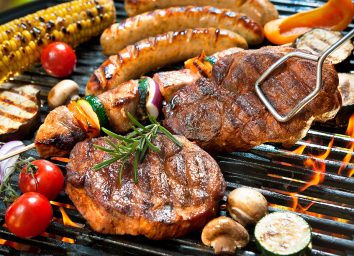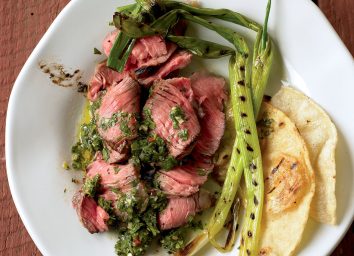The Best Ways To Barbecue To Reduce Cancer Risk
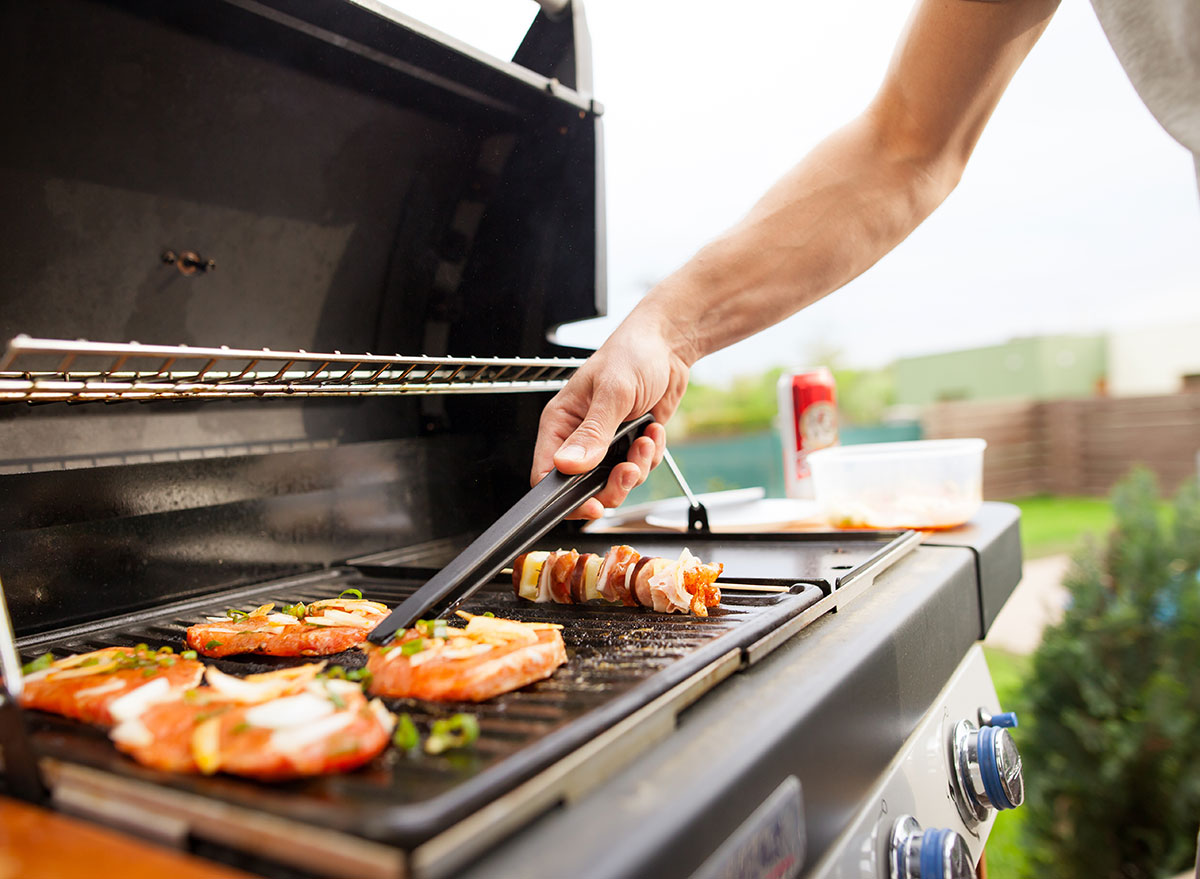
Summer is synonymous with grilling, and you likely have done your share of cooking-out this season. While cooking over a fire has its benefits, like being able to cook in bulk, less mess inside the house, and spending time outdoors, you may have heard of some health concerns that come along with barbecuing as well, like the carcinogens produced while cooking over a flame. Luckily, this doesn't mean you have to pass on grilling for good, there are just a few things to consider first.
For starters, you should know the possible cancer risk associated with grilling is related to cooking meat. If you tend to cook your veggies over the flame, keep on keeping on and load up on those vegetables! When it comes to barbecuing your meat, there are a couple mechanisms at play that can increase the production of carcinogens, which are cancer-causing compounds.
The creatine that naturally occurs within meat turns into a concerning carcinogenic compound when exposed to high heat. Then, when fat drips off the meat and comes in contact with a flame, a carcinogenic compound is formed and rises up to attach to the meat.
Both of these compounds are likely to be present in meat that has been grilled at high heat over an open flame for an extended period of time. Here is what you can do to reduce to production of cancer-causing compounds in your grilled meats. And for more tips on healthy cooking, check out Healthy Lunch Recipes That Take 10 Minutes (or Less).
Eat more antioxidants
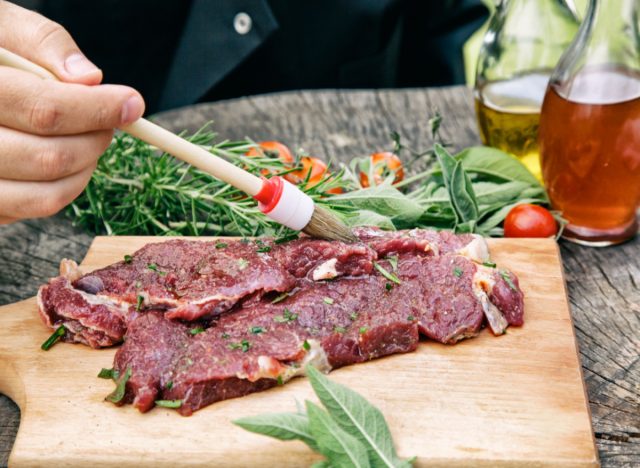
There are so many ways to boost antioxidants at meals. These compounds protect the cells in your body from carcinogens, and can even reduce the production of cancer-causing compounds when grilling. One way to introduce antioxidants to your grilling is to marinate your meat for at least 20 minutes prior to cooking.
A homemade marinade of citrus juice, seasoning, and olive oil is a simple solution, and if you prefer to by a bottled option, look for those low in sugar and salt. You can also add antioxidants to your meals by eating more fruits, vegetables, and healthy fats, like avocado, nuts, and seeds.
Reduce time on the grill
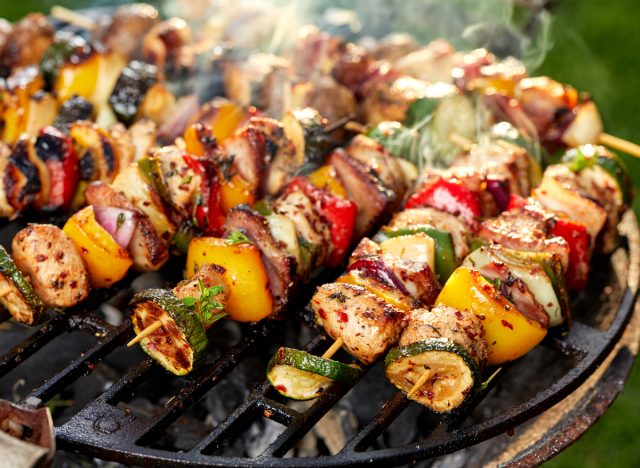
The longer your meat is exposed to high heat, the higher the number of carcinogenic compounds that will form. There are a few ways to reduce the amount of time your meat is on the grill. You can cook your meat in small pieces, like kabobs, that will require less total time over a flame. You can also partially cook your meat in the oven or on the stove before finishing it on the grill. Additionally, wrapping your meat in foil will reduce the amount of fat that drips into the flames and will also speed up cooking time.
Try plant-based options
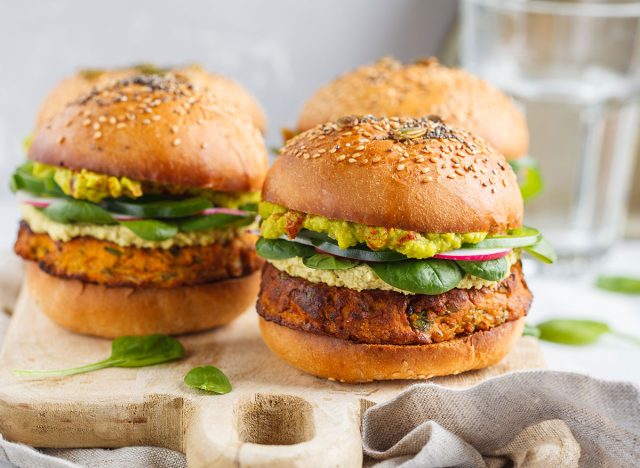
With numerous plant-based burgers, sausages, and patties available on the market, there are so many ways to swap your traditional grilling meats for plant proteins. Because these vegan options contain no animal protein and often less fat than animal proteins, there will likely be far fewer carcinogens produced in the grilling process. While some products are meant to mimic animal meat very closely, others will have their own unique flavor and texture. Take your pick and know that using these plant-based options will likely lead to fewer carcinogens consumed and will provide additional nutrients, like fiber, that are not found in meat.
Additional ways to reduce carcinogens while grilling include using leaner cuts of meat so there is less fat dripping into the flames, avoid charring meat, thoroughly clean your grill before each use, and have a water bottle handy to spritz the flames if they flare up.


